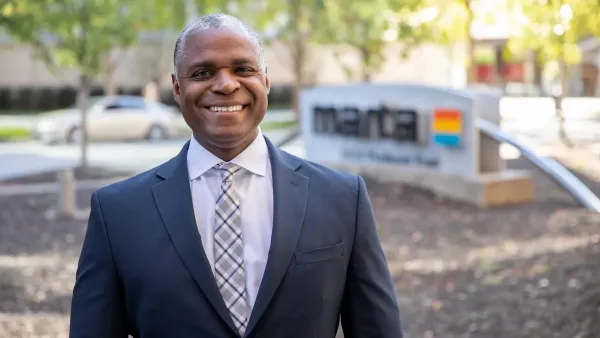Although the latest immigration bill being debated upon in congress has attracted relatively little attention from planners, the planning implications of reforming or not reforming current immigration policy are huge. Immigration impacts labor markets, and thereby commuting patterns, transportation planning and economic development. Immigration swells the population of many cities and towns forcing planners to rethink their plans for housing, schools and other public services. Often overlooked, however, is f immigration’s impact on the planning process itself.
Although the latest immigration bill being debated upon in congress has attracted relatively little attention from planners, the planning implications of reforming or not reforming current immigration policy are huge. Immigration impacts labor markets, and thereby commuting patterns, transportation planning and economic development. Immigration swells the population of many cities and towns forcing planners to rethink their plans for housing, schools and other public services. Often overlooked, however, is f immigration's impact on the planning process itself.
In the wake of the top down planning associated with urban renewal in the 1950s and 1960s a near consensus emerged that planning should strive to be democratic and inclusive. Planners should strive to plan for all, particularly the disadvantaged, and include the citizenry in the planning process. However often planners fail to live up to this ideal in practive, it is still viewed as the ideal by many and almost all planning agencies pay at least lip service to this ideal.
The rise of undocumented immigration and proposals to address this problem, however, pose a number of challenges for those committed to the idea of democratic planning. How does one plan for those who don't want others to know they are here, and whom many think should not be here? To be sure, undocumented immigrants have been organized around some issues, typically related to undocumented workers being exploited by employers. Usually these issues are fairly straightforward. Workers want better pay and/or conditions. If they can block the employer from hiring replacements, they have a good shot at meeting their objectives.
Citizen participation in planning, however, typically requires a good deal of sophistication about local planning regulations, savvy about the development process, free time and at least the power of the vote to wield against local politicians. All of these are likely to be in short supply or nonexistent among undocumented immigrants. Consequently, a locale with a great many undocumented immigrants is unlikely to be able to plan in a truly inclusive manner.
Pending legislation on Capitol Hill would address the challenges of undocumented immigration by offering a path to citizenship. Other aspects of this legislation, however, present other challenges to the goal of democratic and inclusive planning. In particular, proposals to create a guest worker program would create a class of workers with little in the way of long term interests in the communities in which they reside. How to include such a class of workers in an inclusive planning process? Such workers would likely have little interest in planning. Under current legislation the numbers of guest workers would be small. But these numbers are subject to change.
These challenges elude easy solutions. Democratic and inclusive planning is hard to pull off with an educated and involved citizenry. Immigration should lead to a rethinking of how to proactive democratic and inclusive planning. While the rest of the country debate immigration, planners too should consider how their models for planning may need to change to account for the newcomers among us.

Planetizen Federal Action Tracker
A weekly monitor of how Trump’s orders and actions are impacting planners and planning in America.

Chicago’s Ghost Rails
Just beneath the surface of the modern city lie the remnants of its expansive early 20th-century streetcar system.

Amtrak Cutting Jobs, Funding to High-Speed Rail
The agency plans to cut 10 percent of its workforce and has confirmed it will not fund new high-speed rail projects.

Ohio Forces Data Centers to Prepay for Power
Utilities are calling on states to hold data center operators responsible for new energy demands to prevent leaving consumers on the hook for their bills.

MARTA CEO Steps Down Amid Citizenship Concerns
MARTA’s board announced Thursday that its chief, who is from Canada, is resigning due to questions about his immigration status.

Silicon Valley ‘Bike Superhighway’ Awarded $14M State Grant
A Caltrans grant brings the 10-mile Central Bikeway project connecting Santa Clara and East San Jose closer to fruition.
Urban Design for Planners 1: Software Tools
This six-course series explores essential urban design concepts using open source software and equips planners with the tools they need to participate fully in the urban design process.
Planning for Universal Design
Learn the tools for implementing Universal Design in planning regulations.
Caltrans
City of Fort Worth
Mpact (founded as Rail~Volution)
City of Camden Redevelopment Agency
City of Astoria
City of Portland
City of Laramie






























